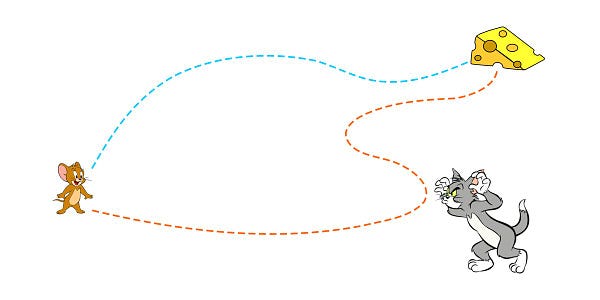Being good at a thing is different from being lucky. Becoming good takes time and is a continuous process. Luck is usually a one-off thing. You want to gain skill and be good at a thing; luck is chance.
More importantly, you want to capitalize on luck when it comes. Luck comes randomly, but it does come. You should not be bothered about luck, instead be bothered about your positioning when luck comes. Because luck, like buses, there’s always another one coming, just be sure you’re not at the wrong bus stop.
Assume luck to be a head start in whatever race you are running. It is unlikely to be the determinant factor of who wins the race. However, its impact can’t be ignored. When you get a head start, you’d want it to compound.
Not all luck is the same. Getting lucky at the beginning of your career can completely alter your trajectory. Getting luck at the end of your career will have less impact.
If you are asked to choose whether you would get $1M at the start of the year or at the end of the year (assuming the present and future value remain the same). It would be wiser, all else being equal, to choose at the start of the year.
Like in compounding, there is a difference between compounding at the beginning of the period and at the end of the period.
A similar way of looking at it is through weighted average. Weighted average is a calculation that takes into account the varying degrees of importance of the numbers in a data set.
Assuming the first year of your career is the most important (actually the first few years are very pivotal), then having a good luck during your early years has more impact and therefore more important than the following years.
What am I saying?
In summary, luck or the result from luck is path dependent, i.e. history matters. This means getting lucky early is great, when you keep compounding that early luck you become a genius. Assuming the earliest time have the highest assigned weight, then luck at the earliest time have the highest impact.
In finance, profits or returns are also path dependent. If you are too early, you go burst before your thesis is proved right. If you are too late, then there are no outsized returns either.
Your earliest returns on investment will determine whether you’d live to see the light at the end of the tunnel. This thread does a beautiful job of explaining the concept of path dependence.


My question to you is, what are you doing to prepare yourself when luck (opportunity) comes knocking on your door?
Remember this



Readings
Why Stress is bad for your brain
Can two people from different economic backgrounds ever be truly intimate?
This article is an attempt to make a connection between these articles.
Compounded Luck -Seth Godin
Good Luck -Jack Raines



